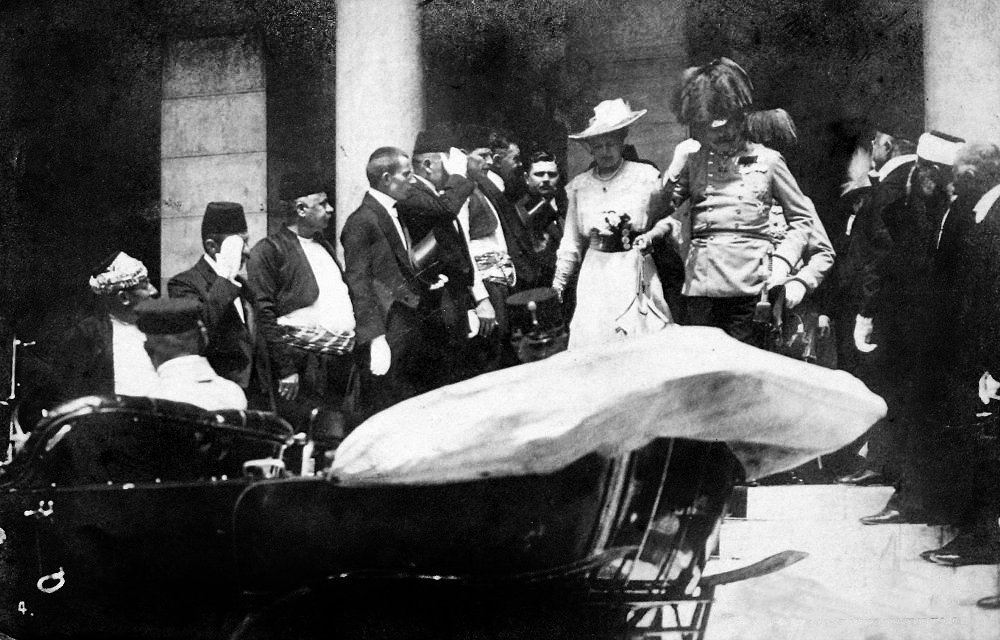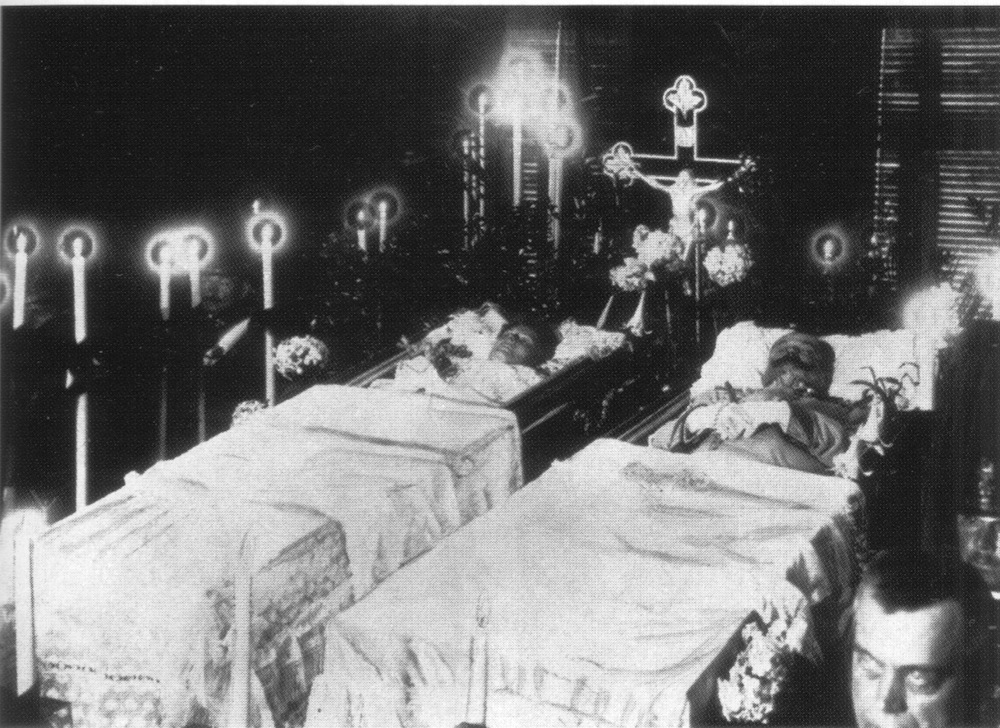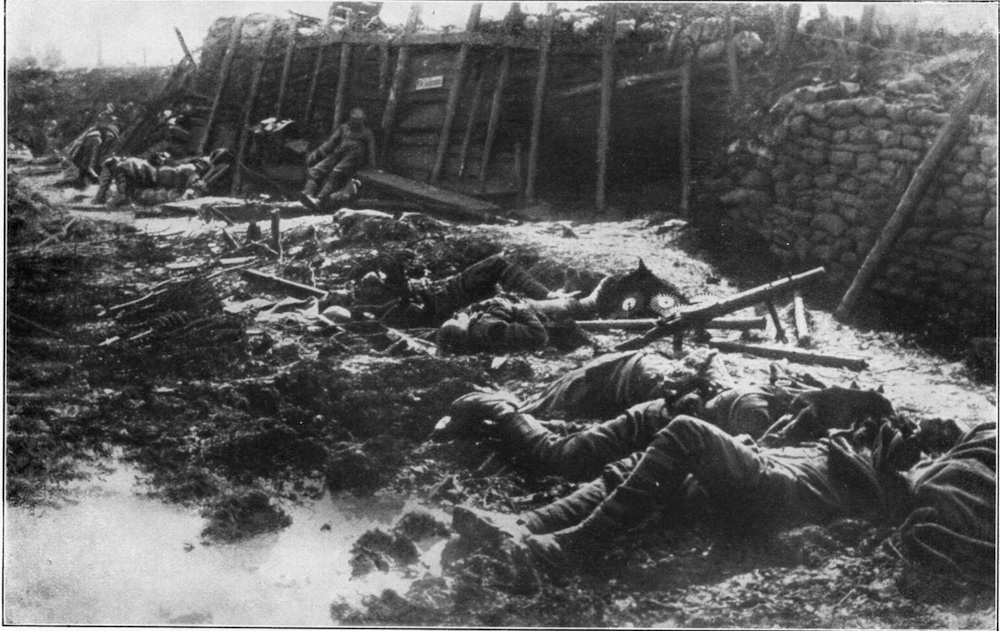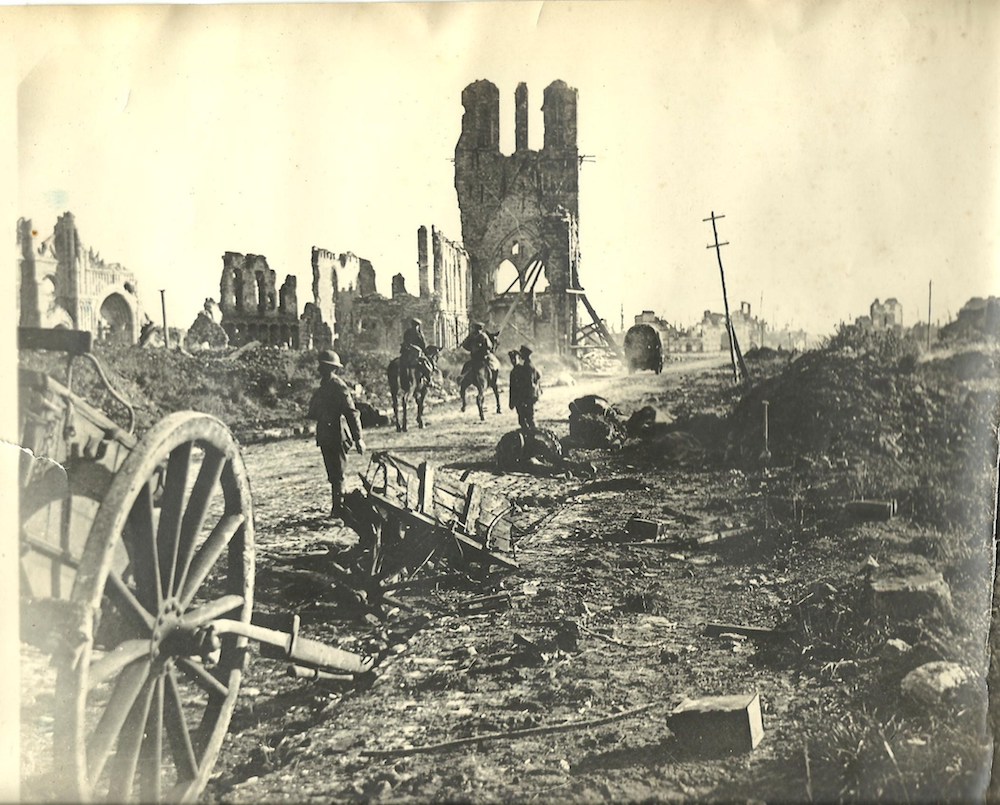June 28, 2014
100 Years Ago Today: The Beginning of The End
Archduke Franz Ferdinand was the heir apparent to the throne of Austria-Hungary. He had initially been third in line for the throne and as such had, in his early years, led a somewhat dilettante lifestyle. After a suicide and then typhoid fever placed him in the position of heir he frequently came to violent disagreements with his father(the Emperor Franz Joseph) over what he perceived as needed reforms. While Franz Ferdinand was a bit of an autocrat and a staunch royalist who wanted to consolidate executive power on the throne, he also wanted to establish a basically federal system granting considerable autonomy to the various regions. He also wanted to ensure all ethnicities had equal standing, which was very unpopular in some quarters, particularly the Hungarian half of the empire, which had its own legislature. In essence he wanted to extend in some ways the privileges the Hungarians enjoyed to all regions while simultaneously unifying the country on strictly national matters. Furthermore he wanted to organize a third ceremonial kingdom out of the slavic states with equal prestige as Austria and Hungary to drive home the idea that the Slavs were full citizens. Franz Ferdinand was also one of the few voices in government advocating that the Empire should cultivate good relations with its neighbors and in particular, not poke Serbia any further.




Comments are disabled.
His wife Sophie was a commoner and was not permitted any royal courtesies by imperial decree (another reason there was grief between Archduke and Emperor). However she was accorded the courtesies and privileges due the wife of a general in the imperial army if he was engaged in official military business. Thus, when he went to Sarajevo to inspect a local garrison she accompanied him.
While there they made some goodwill appearances and visited the Sarajevo town hall....

Moments after that picture was taken both were assassinated by the leader of a local chapter of a Serbian secret society called the Black Hands...which despite his melodramatic title was an an angry young loser of a man who lived with his mother.
The assassination removed one of the last voices for conciliation with the Serbs and threw the Emperor into a grief stricken rage.

Russia stepped up to defend their Serbian allies which obliged Germany to step in and honor their treaty with Austria-Hungary, whereupon the Kaiser signed off on a unfortunate plan to preemptively take out France "quickly", lest they decided to open up a second front...which brought the British Empire into the fight. These and other decisions formed a cascade failure of strategic miscalculations amongst the governments of Europe cumulating in a disaster of unimaginable proportions from which the world has still not fully recovered.


The entrance of the Ottoman Empire into the fray and its subsequent collapse precipitated the mess we now call the Middle East. The toll the war took on Russia begat the Soviet Union, international communism and the hundred or more millions that died from that ideology in Russian, China and elsewhere. Germany, broken and humiliated by the conflict rose up under the leadership of a fiend to lash out once more against a world still reeling, not only from the loss of a generation of young men, but from the fact that this unspeakable, and stupid orgy of carnage broke the spirit of the west.
The progress that civilization has made in the last hundred years seems impressive, but it pales between the vast leap that took place between the end of one great war in 1814 and the events of 1914. From the cold war, to the middle east, we've spent the better part of a century putting out fires started or fanned by the First World War...and still they smolder.
We hardly think of this conflict today but its ramifications are still with us. Let us hope the lessons are as well, because while history, as they say, does not exactly repeat, it does rhyme.
The analogies at the link, while worrisome, can be taken too literally. There is of course, little significance to the century mark beyond superstition baed on numerology. If we were using hexadecimal this year it wouldn't even have that, but the artificial significance of a hundred years passing should be taken to reflect upon not only the carnage, but the miscalculations that led to it.
Posted by: The Brickmuppet at
06:55 PM
| Comments (4)
| Add Comment
Post contains 730 words, total size 5 kb.
1
...an angry young loser of a man who lived with his mother.
At the risk of sounding flippant, I'll point out that that one phrase neatly describes most of the members of the now-moribund Occupy movement.
On a more serious note, the parallels between then and now frighten me. If anything, things are worse now. Now, we have more nations bumbling around the world stage, acting just as foolishly and with just as much belligerency, and armed with weapons that make even the deadliest weapons of WWI look like toys. Also consider the various Islamist terror groups, who are playing a similar role to the Black Hands, except that (a) they have proven themselves to be more motivated, better organized, and much more brutal, and (b) they have (or have improvised) weapons that are far more devastating than the crude bombs and pocket pistols the Serbian radicals had, and may yet gain access to weapons that are even more destructive. (As a small aside, also consider that many Western nations, the United States included, have bred their own potential Black Hands; the above-mentioned Occupy movement, The Traitor Formerly Known As Bradley Manning, and recent British and Australian volunteers for international jihad are the bellwethers of this.)
At the risk of sounding flippant, I'll point out that that one phrase neatly describes most of the members of the now-moribund Occupy movement.
On a more serious note, the parallels between then and now frighten me. If anything, things are worse now. Now, we have more nations bumbling around the world stage, acting just as foolishly and with just as much belligerency, and armed with weapons that make even the deadliest weapons of WWI look like toys. Also consider the various Islamist terror groups, who are playing a similar role to the Black Hands, except that (a) they have proven themselves to be more motivated, better organized, and much more brutal, and (b) they have (or have improvised) weapons that are far more devastating than the crude bombs and pocket pistols the Serbian radicals had, and may yet gain access to weapons that are even more destructive. (As a small aside, also consider that many Western nations, the United States included, have bred their own potential Black Hands; the above-mentioned Occupy movement, The Traitor Formerly Known As Bradley Manning, and recent British and Australian volunteers for international jihad are the bellwethers of this.)
Posted by: Peter the Not-so-Great at Sat Jun 28 23:50:19 2014 (2eP1J)
2
There are ways in which things are far better now. For one thing, we don't have the row-of-dominoes alliances set up which led to a diplomatic cascading failure.
Posted by: Steven Den Beste at Sun Jun 29 01:06:10 2014 (+rSRq)
3
This is the first I've heard of the Archduke's policies. It sounds like if he had survived, things would be even better than we imagine things would be simply if the war hadn't happened.
Posted by: Mauser at Sun Jun 29 01:18:20 2014 (TJ7ih)
4
Nuclear weapons really did change everything. In World War 1, the main fear of countries was that they would delay mobilization, their enemies would mobilize, and they would lose the war before they could properly form up their levies; this is essentially what happened in the latter wars of the 1800s, where Prussia won several decisive encounters through superior organization. Alsace-Lorraine was obtained that way in the first place, right?
Nowadays, the need to have your civilians drafted and mobilized is next to nil, and the rewards to be run through a devastating first strike are quite a bit smaller. No civilian militia or freshly-drafted troops could stand against a professional Western army (and, to be blunt, none of the other professional Western armies dare stand against the US; even the Brits and the French would be little but speed bumps). On the other hand, having experienced WW1, the Western countries are very hesitant to be the first one to pull the trigger. Even Hitler didn't resort to invading countries outright, without a buildup of public opinion and well-crafted justifications. (Of course Pete would probably say "I can think of one example!" ;p)
The biggest issue regarding world peace is that there was previously a system where the powerful Western countries demanded that the leadership of other countries take responsibility for the actions of their countrymen, and happily decapitated those who did not; the idea that a country would be considered "sovereign" but not fully under control of all its territory was silly. Now we've got a series of countries who can claim sovereignty within their borders without actually having control of the population within those borders; the penalty for toleration of such shamelessness has not been fully paid.
That said, the REALLY scary parallel isn't with the start of WW1, but the US's chosen tactics in WW2. We have previously denounced entire areas of warfare, such as the bombardment of cities or the use of unrestricted submarine warfare, as barbaric and completely incompatible with the behavior of a modern society; yet, when pressed, we embraced those strategies thoroughly and to the massive detriment of our foes. Should the new asymmetrical strategy of the employment of non-governmental combatants prove to be a true threat to the US, we would likely embrace that strategy as well. And how well would we do, with our acceptance of military necessity, our widespread gun culture and gun ownership, our legions of youth trained from a young age in advanced squad tactics, and our vast wealth coupled with our technology advantages?
(Basically, were it not illegal, could I see the same folks who play Counterstrike or League every night piloting remote killing-drones through the streets of Medina for the glory and lols? Oh yes, oh yes indeed.)
Nowadays, the need to have your civilians drafted and mobilized is next to nil, and the rewards to be run through a devastating first strike are quite a bit smaller. No civilian militia or freshly-drafted troops could stand against a professional Western army (and, to be blunt, none of the other professional Western armies dare stand against the US; even the Brits and the French would be little but speed bumps). On the other hand, having experienced WW1, the Western countries are very hesitant to be the first one to pull the trigger. Even Hitler didn't resort to invading countries outright, without a buildup of public opinion and well-crafted justifications. (Of course Pete would probably say "I can think of one example!" ;p)
The biggest issue regarding world peace is that there was previously a system where the powerful Western countries demanded that the leadership of other countries take responsibility for the actions of their countrymen, and happily decapitated those who did not; the idea that a country would be considered "sovereign" but not fully under control of all its territory was silly. Now we've got a series of countries who can claim sovereignty within their borders without actually having control of the population within those borders; the penalty for toleration of such shamelessness has not been fully paid.
That said, the REALLY scary parallel isn't with the start of WW1, but the US's chosen tactics in WW2. We have previously denounced entire areas of warfare, such as the bombardment of cities or the use of unrestricted submarine warfare, as barbaric and completely incompatible with the behavior of a modern society; yet, when pressed, we embraced those strategies thoroughly and to the massive detriment of our foes. Should the new asymmetrical strategy of the employment of non-governmental combatants prove to be a true threat to the US, we would likely embrace that strategy as well. And how well would we do, with our acceptance of military necessity, our widespread gun culture and gun ownership, our legions of youth trained from a young age in advanced squad tactics, and our vast wealth coupled with our technology advantages?
(Basically, were it not illegal, could I see the same folks who play Counterstrike or League every night piloting remote killing-drones through the streets of Medina for the glory and lols? Oh yes, oh yes indeed.)
Posted by: Avatar_exADV at Sun Jun 29 04:57:38 2014 (ZeBdf)
39kb generated in CPU 0.0183, elapsed 0.1148 seconds.
69 queries taking 0.1012 seconds, 381 records returned.
Powered by Minx 1.1.6c-pink.
69 queries taking 0.1012 seconds, 381 records returned.
Powered by Minx 1.1.6c-pink.









